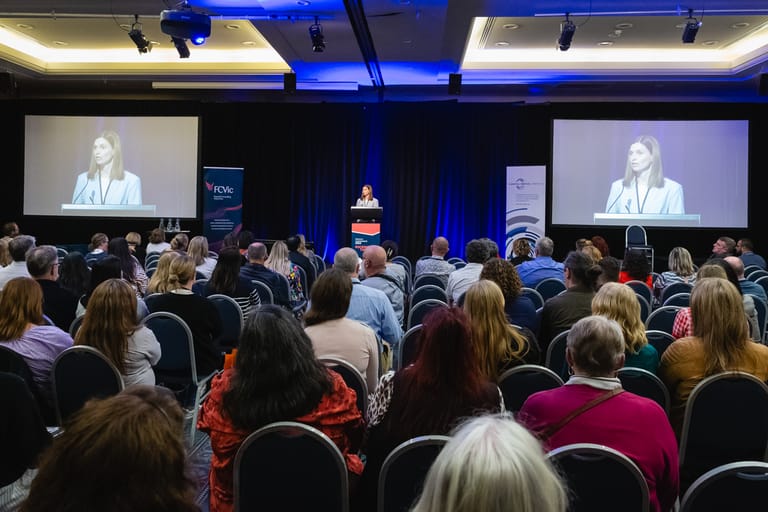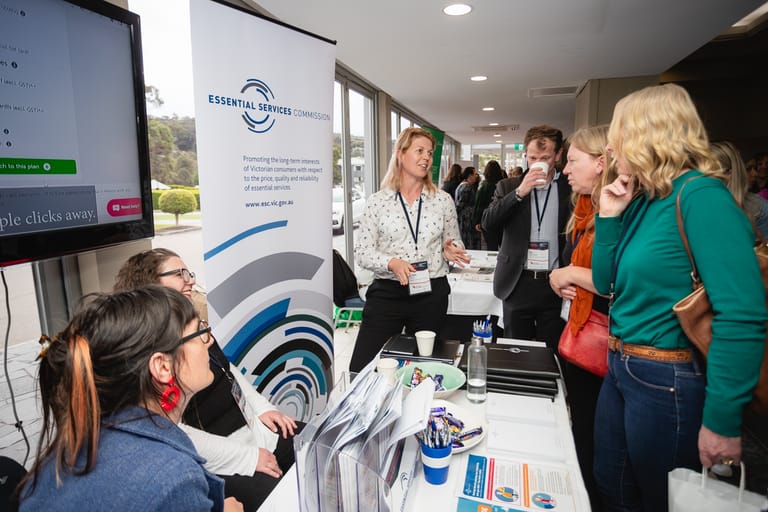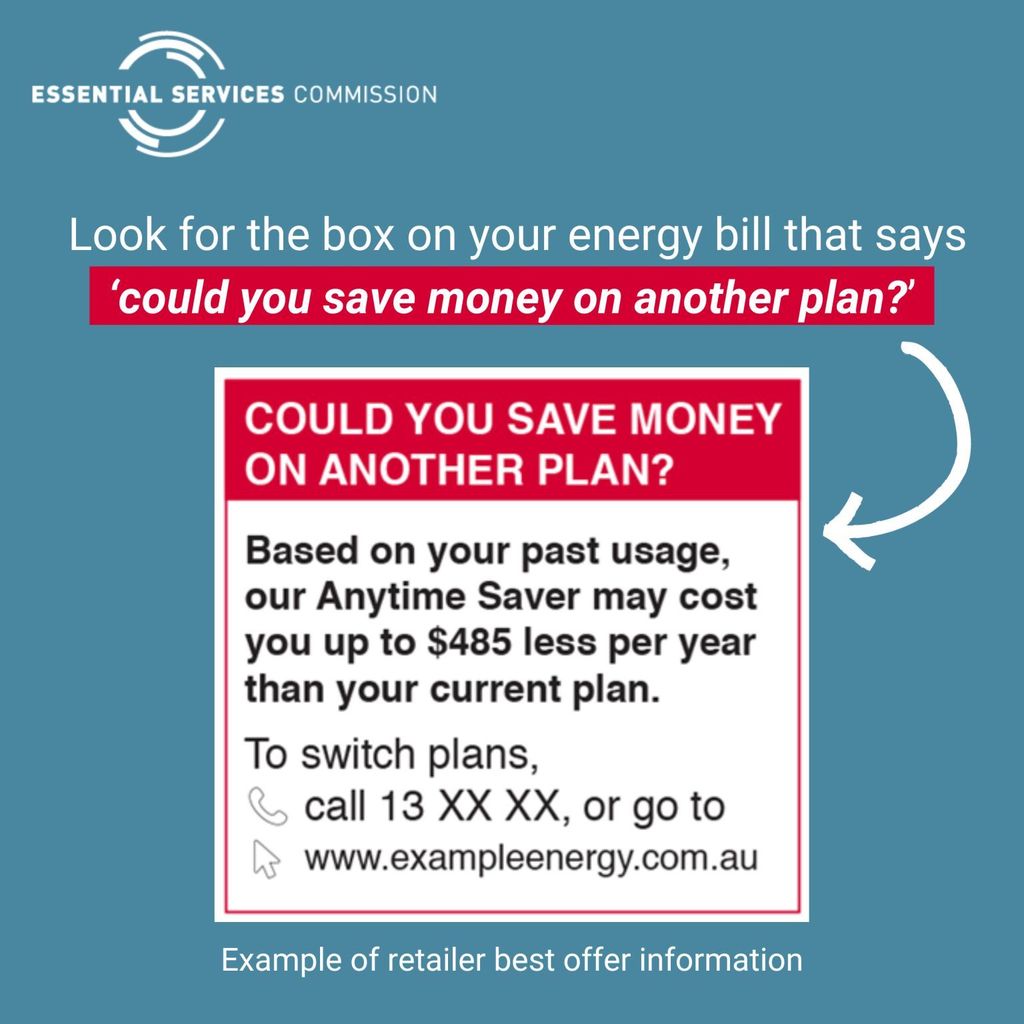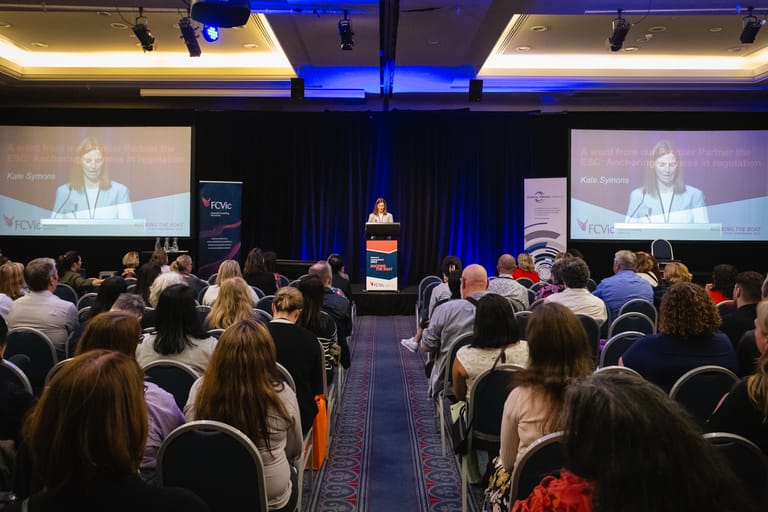The Essential Services Commission is an independent regulator that promotes the long-term interests of Victorian consumers with respect to the price, quality, and reliability of essential services. The sectors the commission is responsible for include energy, local government, transport and water, and the Victorian Energy Upgrades energy efficiency program.
The commission administers the water industry standards and the energy retail code of practice. These rules outline the minimum levels of support that water and energy retailers must provide for Victorian consumers, including key protections relating to billing, payment difficulty support, communication regarding disconnection and restriction, and family violence protections.
Kate Symons is the chairperson of the Essential Services Commission and gave a presentation at the FCVic 2023 Conference on Anchoring Fairness in Regulation. The commission was also the premier sponsor for the Conference.
For the readers who couldn’t attend the Conference, what was the key message in your talk on Thursday afternoon that you’d like to highlight?
I wanted to impart that the Essential Services Commission is committed to achieving better outcomes for Victorian consumers who may be experiencing vulnerability.
The way we can do that is by making sure that the experiences of consumers are considered when we are making new rules, changing existing rules, or taking action to enforce the rules that lift the practices of essential services providers in our regulated sectors.
We respect and value the work that financial counsellors do at the frontline because you have a practical and contemporary understanding of what the key issues are for these consumers, and we want you to know that the insights you share with us about your work are carefully considered at the commission and when we set our priorities.

What were the highlights of the Conference for the ESC team?
I know that my team learned a lot from the discussions that they had with financial counsellors at the conference. And so did I! It is so valuable for us to put a face to a name, and we hope that you felt the same way.
It was significant to be in a room full of people working to achieve better outcomes for Victorians and it was great to see the camaraderie between financial counsellors working toward a goal that is also shared by us at the commission.
This was particularly evident at the dinner, which was a great celebration, and included rightful recognition of your hard work through the awards. Congratulations to the winners and nominees – it was insightful to hear about the commitment and dedication of those in the field.
We saw a lot of financial counsellors and other attendees at the ESC stand over the two days! Any surprising or interesting discussions happening there?
It is always interesting to gain practical insights into how the consumer protections we work on at the commission are being accessed by those that they are intended to benefit.
For example, under our rules, energy retailers in Victoria are required to tell customers on their bills if they are on their best offer, and how much the customer could save by switching. We know that Victorians could have saved an estimated $191 million on electricity bills and $89 million on gas bills last financial year if they had been on this offer, so this is not spare change.
At the stand it was shared with us that some clients don’t open the PDF bill attached to their email, and so they are missing out on the opportunity to see whether they could be on a better energy offer. We want to make sure there are no barriers to accessing the benefits of this key consumer protection, so please encourage your clients to check if they are on their retailer’s best offer by checking the box on their energy bill that asks, ‘could you save money on another plan’?


What kind of ‘boat rocking’ can we expect to see from the ESC in the next year?
I personally cannot accept that a victim of family violence may have their new address disclosed to a perpetrator because of a failure by an energy or water business to secure their account details. There are strong consumer protections in our energy and water rules, and we remain committed to helping Victorians who are experiencing, or at risk of experiencing vulnerability, to access essential services. Especially those who are affected by family violence or rely on energy for life support. Consideration of consumer vulnerability is an enduring compliance and enforcement priority as outlined in our Getting to fair strategy.
To further support this work, we will be reviewing the Energy Retail Code of Practice in 2024. The code is important because it contains the rules and policies that can impact your client’s energy bills, such as the best offer protections I mentioned earlier. It also includes important consumer protections such as those in place for customers experiencing family violence.
It is key that we have a full understanding of how these rules are working in practice, so I encourage you to participate in the consultation when it commences and let us know what may or may not be working for consumers. You can subscribe to our newsletter at www.esc.vic.gov.au to be updated when the consultation commences on Engage Victoria.
Any other burning messages you’d like to share with financial counsellors?
In short, please keep talking to us.
I hope you feel you can reach out to the Essential Services Commission to tell us about concerns or issues or questions you have in relation to accessing the supports we administer to ensure consistent, affordable access to essential services for Victorians.
The best way to contact us for issues relating to energy is via: [email protected] and [email protected] for concerns relating to water.
I look forward to continuing our work with Financial Counselling Victoria and thank you for your enduring commitment to supporting those in our community experiencing vulnerability.


